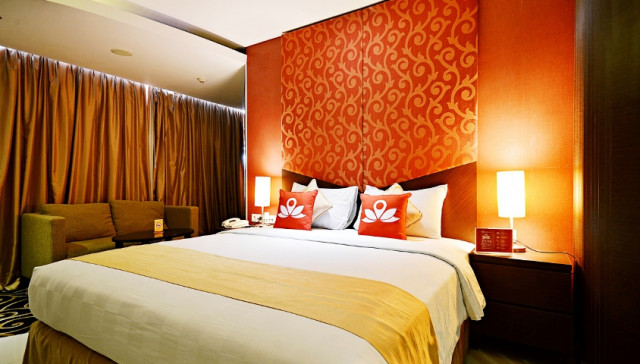Rocket Internet wants to Uber-ify Southeast Asia’s budget hotels
Rocket Internet says Zenrooms is not a competitor of the company's existing hotel booking site Jovago

PHOTO: ZENROOMS
Zenrooms seems to be fashioned on well-funded India-based startup Oyorooms. It aims to solve the fragmented nature of the budget hotels industry in Southeast Asia. The startup, which has been running in beta for about a month, will kickstart operations in Singapore, Thailand, and Indonesia with about 200 hotels and over 1,000 rooms. Prices per night start at about US$8 and go up to US$50 with the majority of hotels in the two to three-star category.
Rocket Internet launches mobile classifieds app Sparklist in Pakistan
Co-founder Kiren Tanna tells Tech in Asia there was a pressing need for a curated, branded marketplace like Zenrooms. Domestic and regional travel is immensely popular in Southeast Asia but consumers face difficulties in discovering clean, tidy hotels at reasonable rates. The current practice is to either use Agoda, or Booking.com, but the majority of budget hotels are either not present on those platforms, or simply get crowded out due to sheer volume. Fancy hotels sometimes pay for the privilege of ranking higher in search results, and the net impact is that consumers suffer.
Dreary rooms
The value proposition Zenrooms offers is quality, reliability, and uniformity of service – rather like Uber does with UberX. Each hotel on its site will have undergone a strict, exhaustive, and thorough audit to ensure it meets a particular standard. Kiren explains that during their research, they understood travelers in this category look for six things: a clean room, comfortable bed, in-room shower, flatscreen TV, air conditioning, and Wi-Fi. Hence, each hotel will, at the very least, offer these basic services.
After a stuttering start, Rocket Internet’s Daraz is finally poised to take off
“We’ve promised to customers we’ll provide these six things and there’s no compromise on that. Hotels who don’t meet this criteria will have to upgrade if they wish to be part of Zenrooms,” adds Kiren.
Zenrooms itself will have two categories – with the slightly more premium hotels branded as Zenplus. However, the upper limit will be capped at US$50 per night.
There’s plenty of incentive for hotels to be part of the network, explains Kiren. Independent budget hotels suffer from a lack of brand equity – they’re discovered and then forgotten. Hotels will have to rebrand according to their location, for example Zenrooms Chinatown (in Singapore), but that change will help them a lot.
Careem raises $60m, but is that enough to compete with Uber?
“We’re becoming a chain of branded, budget hotels. That’s the entire idea,” he adds.
High volumes
Kiren says the new startup will appeal to four types of travelers. The first is domestic middle-class family travel – people who want to take their kids to see new places such as short getaways to locations in Bali or Surabaya. Another category is young professionals and couples who may not have very high disposable incomes but want to travel. Then there are business travelers traversing between countries in Southeast Asia. Lastly, he believes the low prices will also attract European and American backpackers who usually stay in hostels.
Uber set to launch operations in Pakistan
Rocket Internet already has Jovago, a hotel booking site present in Pakistan, Bangladesh, and Myanmar, as well as parts of Africa, but Kiren says the two are not in competition with each other. Expanding Zenrooms to South Asia is something the team is considering, but if and when that does happen, the two very different sites will work in tandem.
Rocket is already ahead of its plan to bring four startups to Asia each year. The announcement was made three months ago, and in that time frame it has already launched three companies. Kiren, who previously led Foodpanda and is a veteran by Rocket Internet standards, says four startups is a “bare minimum”, and the “commitment given to investors.” There will, most likely, be more.
“We’re so bullish on underserved markets in Southeast and South Asia that wherever we see opportunity we’ll try to capitalize on it,” he explains.



















COMMENTS
Comments are moderated and generally will be posted if they are on-topic and not abusive.
For more information, please see our Comments FAQ